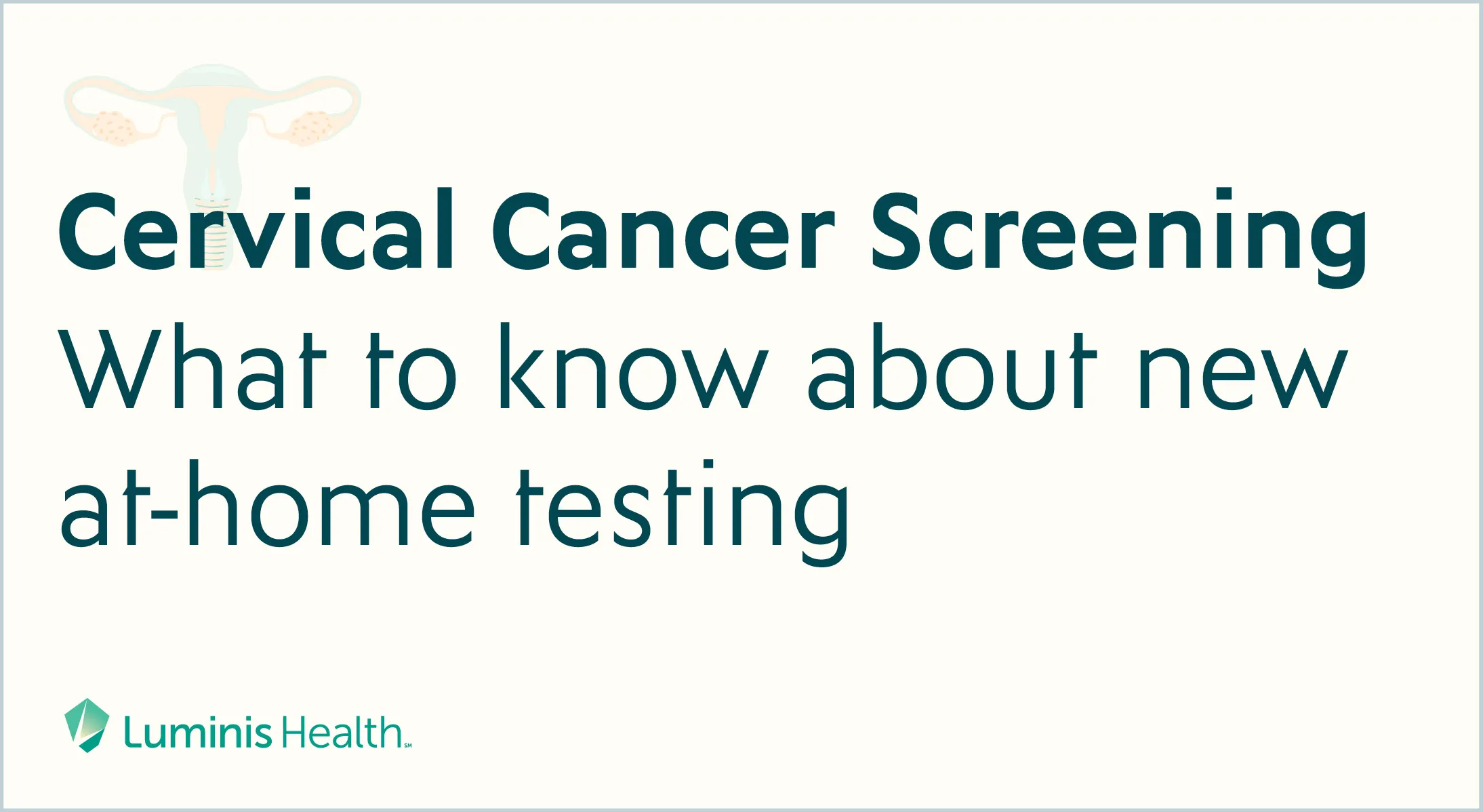A partir del 20 de enero de 2026, se recomienda el uso de mascarillas para todo el personal, pacientes y visitantes en todos los centros de Luminis Health, y esta recomendación se mantendrá vigente hasta el final de la temporada de gripe. Gracias por su paciencia mientras continuamos brindando atención a nuestra comunidad.

Cervical cancer screenings play a vital role in catching cancer early, when it’s most treatable. With new testing options, including an at-home test recently approved in the U.S., more people find it easier to stay on top of their health. Here’s what you should know about cervical cancer tests, how they work and why regular screenings matter.
The basics of cervical cancer screening
According to the Centers for Disease Control and Prevention (CDC), around 13,000 people in the United States are diagnosed with cervical cancer each year. The good news is that screenings—like a Pap smear, a human papillomavirus (HPV) test, or both—can find changes in cervical cells before they turn into cancer.
Regular screenings give the best chance of catching problems early, when treatment works best. Over the past few decades, this has already helped lower cervical cancer rates significantly.
In-office vs. at-home testing
Traditionally, cervical cancer screening is done during a pelvic exam at a doctor’s office. During the visit, a health care provider collects cells from the cervix and sends the samples to a lab for testing.
Now, a new at-home test provides another option. The American College of Obstetricians and Gynecologists (ACOG), reports that the FDA recently approved a self-collection method for HPV testing, which may help expand access to cervical cancer screening. With this option, patients collect a sample at home using a simple kit, then mail it to a lab for analysis. While this option can be helpful for those with limited time, difficulty accessing appointments or discomfort with in-office exams, it’s important to know that it does not replace screenings with a provider.
Key differences between at-home and in-office testing include:
- Comprehensive care: Office visits often include other important screenings and exams.
- Follow-up care: A doctor can immediately discuss next steps if any arise.
- Provider expertise: In-office tests are done by trained professionals who ensure proper sample collection.
At-home tests can be a good starting point, especially for those overdue for screenings, but they should not entirely replace professional evaluations.
When and why you should get screened
ACOG recommends that cervical cancer screening begin at age 21. Screening guidelines by age:
- Ages 21 to 29: Get a Pap test every 3 years.
- Ages 30–65: Choose from a Pap test and HPV test every 5 years, a Pap test alone every 3 years, or an HPV test alone every 5 years.
- Age 65 and older: Screening is not needed unless there is a history of cervical changes, cervical cancer, or certain health conditions, such as being immunocompromised.
It’s also important to note that those who are vaccinated against HPV still need screening, as the vaccine doesn’t protect against all cancer-causing HPV strains. Talk to your provider about the best screening schedule based on your age, health history and risk factors.
What happens if you’re diagnosed with cervical cancer?
It’s easy to feel overwhelmed after being diagnosed with cervical cancer. The important thing to remember is that when it’s found early, treatment is often very successful, which is why regular screenings matter so much.
The right treatment plan depends on the stage of cancer and your overall health. A dedicated care team will be there every step of the way to create a personalized plan and provide the support needed.
Take charge of your health
Whether you choose an at-home option or visit with a provider, what matters most is that you get screened. Regular cervical cancer testing is one of the most effective ways to protect your health.
Cervical cancer is both preventable and treatable. This Gynecologic Cancer Awareness Month, take charge of your health. Call 240-241-7474 to schedule your annual well-woman exam at Luminis Health Primary Care Lanham.
Tormeika Sanford is a nurse practitioner at Luminis Health. To schedule an appointment, visit Luminis.Health/PrimaryCare.



